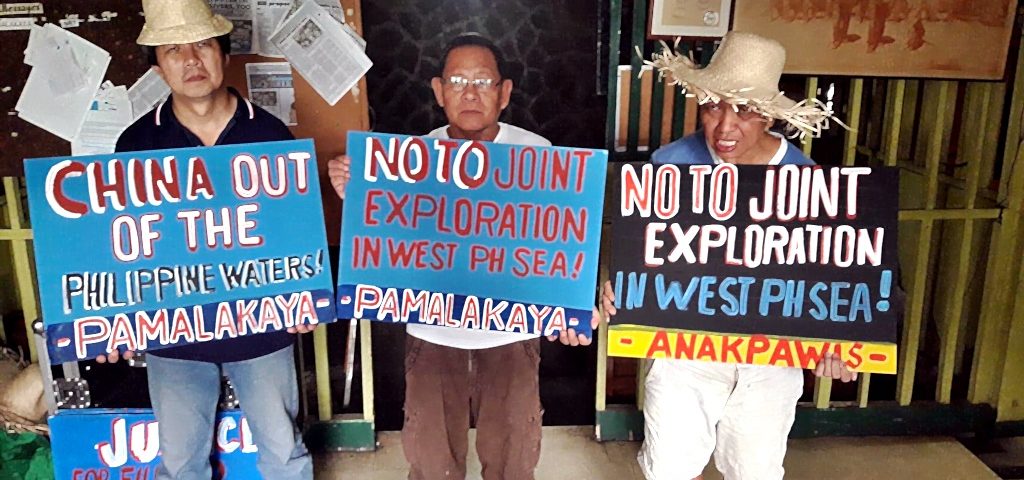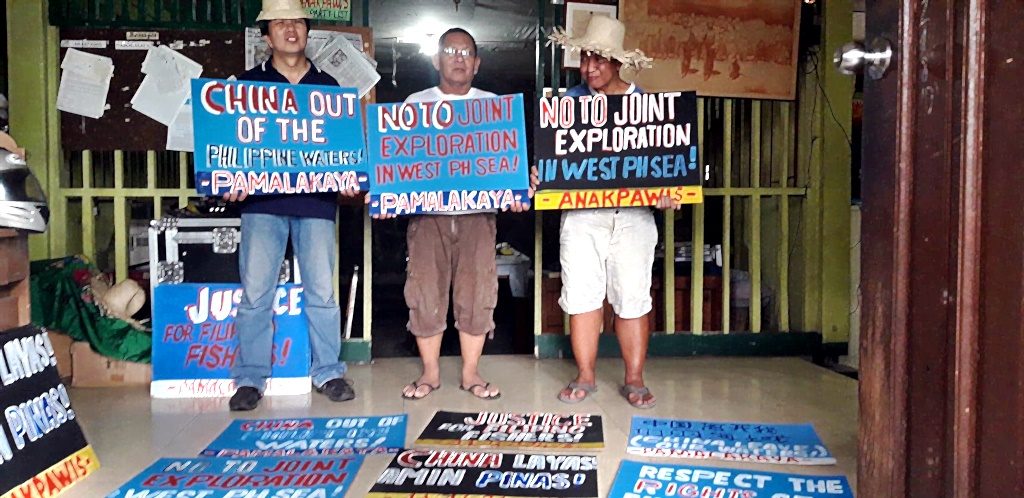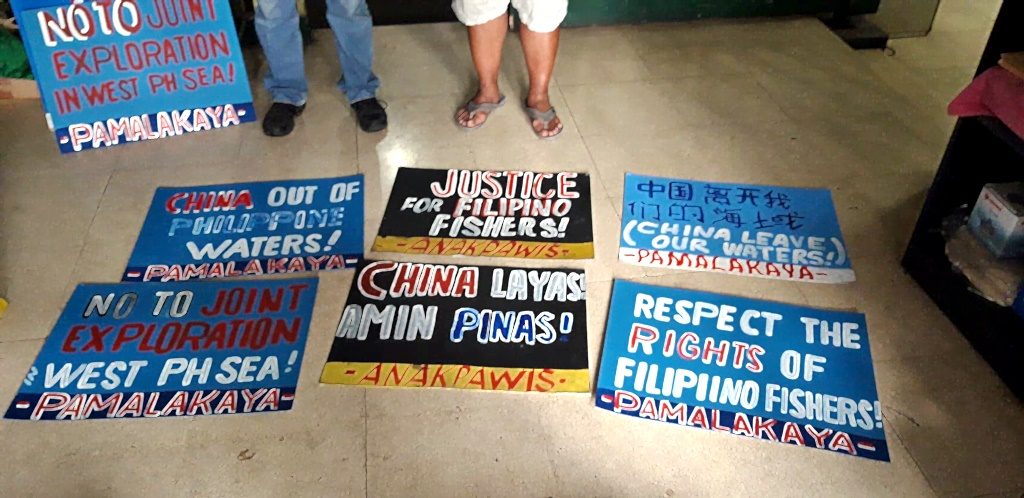Marking the 28th anniversary of kicking out US bases on local soil, fishers call for demilitarization of West Philippine Sea
Manila, Philippines – Coinciding the 28th anniversary of the senate’s rejection of the renewal of the United States and Philippines bases treaty or the kicking out of US armed forces out of local soil in 1991, the militant fisherfolk group Pambansang Lakas ng Kilusang Mamamalakaya ng Pilipinas (PAMALAKAYA) on Monday called for the demilitarization of the West Philippine Sea, particularly the imperialist occupation of China and military installation constructed by reclaming reefs in the region. The group was about to hold a protest in front of the Chinese consulate office in Makati City, but postponed it, due to inclement weather.
The supposed protest was also against the proposed joint oil and gas exploration in Recto Bank (international name Reed Bank) which already reached the signing of Terms of Reference (TOR). They were joined by members of Anakpawis Party-list, Indigenous People’s groups and various sectoral organizations. PAMALAKAYA is a lead organization of broad patriotic alliance Pilipinong Nagkakaisa para sa Soberanya or P1NAS.
PAMALAKAYA National Chairperson and former Anakpawis Partylist Representative Fernando Hicap reiterated his group’s position that a joint exploration will put the Philippines at a disadvantage, as China has repeatedly rejected the UN-backed Permanent Court of Arbitration (PCA) decision invalidating China’s 9-dash line historic claim in nearly the entire South China Sea, including 80% of the West Philippine Sea.
“Just like how China categorically violates an international law that recognizes that the West Philippine Sea (WPS) is ours, it will not respect our rights on the joint oil and gas exploration deal in Recto Bank, or any deal for that matter that involves territories within their preposterous ‘nine-dash’ line claim. China will see to it that it will outwit the country in terms of resource-sharing because of its absolute control not only of the technical aspect, but moreover, the Duterte government itself,” said Hicap.
(“Kung paano tahasang nilalabag ng China ang international law na kumikilalang atin ang West Philippine Sea, hindi rin nito igagalang ang ating karapatan sa joint oil and gas exploration deal sa Recto Bank, o kahit anong kasunduang damay sa kanilang hungkag na ‘nine-dash’ line. Titiyakin ng China na gogoyoin nito ang bansa sa hatian dahil sa absolutong kontrol nito di lamang sa mga aspetong teknila, kundi higit sa lahat, ang mismong gubyernong Duterte,”)
The fisherfolk group’s protest was in time of the anniversary of the Philippines’ historic rejection of American military bases treaty in the country which happened on September 16, 1991, when the strong nationalist Filipino mass movement pressed the majority of the Senate, known as the “Magnificent 12,” to put an end to the almost-a-century old American military presence in the Philippines.
This time, the fisherfolk group added, the bigger threat to the national security and sovereignty is the Chinese militarization in the West Philippine Sea, that the group fears could provoke China’s rival powers.
PAMALAKAYA noted that China had earlier installed surface-to-air missile systems in three artificial islands in Kalayaan Islands (international name Spratlys); namely, in the Kagitingan Reef (Fiery Cross), Zamora Reef (Subi Reef), and Panganiban Reef (Mischief). This militarist exploit has not only snatched territories from the Philippines but is a permanently clear and imminent threat against freedom of navigation of all foreign countries treading the adjacent international waters.
“China’s military fortification and garrisoning of artificial islands and islets in our marine territory is highly alarming and poses threat to our national security, not to mention the fear it casts to our fisherfolk and the impact on our aquatic and marine resources. This militarization does not only concern us and other Asean countries, but the international community, as well,” Hicap added.
“It is high time for every country, claimants and non-claimants of South China Sea, to put external pressure and diplomatic isolation against the imperialist China to thwart its geopolitical and military expansion in the Southeast Asia,” ended Hicap. ###


